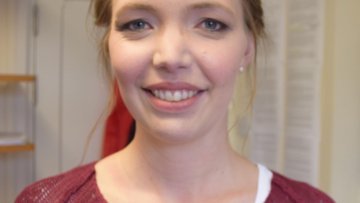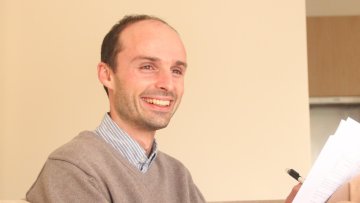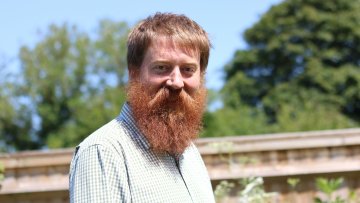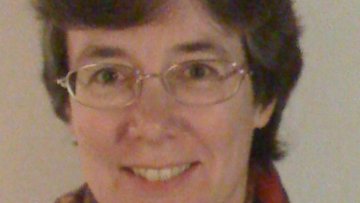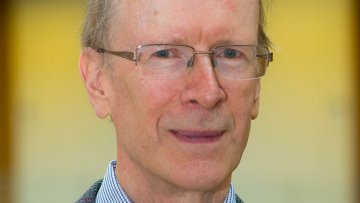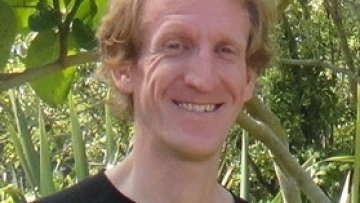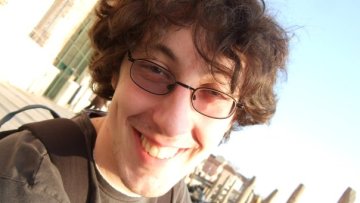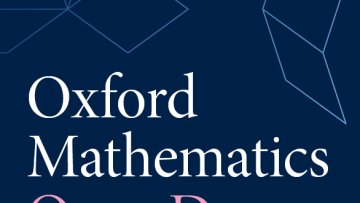Oxford Mathematics is part of the Mathematical, Physical and Life Sciences Division (MPLS) here in Oxford and every year the division gives teaching and equality and diversity awards in recognition of the fact that teaching and the learning environment are at the very core of what we are about and from where all future success will derive.
Oxford Mathematics London Public Lecture: Timothy Gowers - Productive generalization: one reason we will never run out of interesting mathematical questions SOLD OUT
Productive generalization: one reason we will never run out of interesting mathematical questions.
Tim Gowers is one of the world's leading mathematicians. He is a Royal Society Research Professor at the Department of Pure Mathematics and Mathematical Statistics at the University of Cambridge, where he also holds the Rouse Ball chair, and is a Fellow of Trinity College, Cambridge. In 1998, he received the Fields Medal for research connecting the fields of functional analysis and combinatorics.
After his lecture Tim will be in conversation with Hannah Fry. Hannah is a lecturer in the Mathematics of Cities at the Centre for Advanced Spatial Analysis at UCL. She is also a well-respected broadcaster and the author of several books including the recently published 'Hello World: How to be Human in the Age of the Machine.'
This lecture is in partnership with the Science Museum in London where it will take place.
Science Museum, Exhibition Road, London, SW7 2DD
Please email @email to register.
Watch live:
https://facebook.com/OxfordMathematics
https://livestream.com/oxuni/gowers
The Oxford Mathematics Public Lectures are generously supported by XTX Markets.
The Institute of Physics and Engineering in Medicine has announced the winners of the Martin Black Prize for 2019, which is awarded for the best paper published in Physiological Measurement.
Three Oxford Mathematicians have been awarded 2019 London Mathematical Society (LMS) Prizes.
Andrew Wiles has been awarded a De Morgan Medal for his seminal contributions to number theory and for his resolution of ‘Fermat’s Last Theorem’ in particular, as well as for his numerous activities promoting mathematics in general.
The pure cohomology of multiplicative quiver varieties
Multiplicative quiver varieties are a variant of Nakajima's "additive" quiver varieties which were introduced by Crawley-Boevey and Shaw.
They arise naturally in the study of various moduli spaces, in particular in Boalch's work on irregular connections. In this talk we will discuss joint work with Tom Nevins which shows that the tautological classes for these varieties generate the largest possible subalgebra of the cohomology ring, namely the pure part.
Whether you are interested in Maths at Oxford. Whether you are interested in Maths. Whether you are just interested. The Oxford Mathematics Open Day is LIVE on July 3 @10am. You can watch it all, or just dip in and out. You can also ask questions in our live chat at 10.30am. Virtually come along. You are very welcome.
www.facebook.com/OxfordMathematics
or
14:15
The Hitchin connection in (almost) arbitrary characteristic.
The Hitchin connection is a flat projective connection on bundles of non-abelian theta-functions over the moduli space of curves, originally introduced by Hitchin in a Kahler context. We will describe a purely algebra-geometric construction of this connection that also works in (most)positive characteristics. A key ingredient is an alternative to the Narasimhan-Atiyah-Bott Kahler form on the moduli space of bundles on a curve. We will comment on the connection with some related topics, such as the Grothendieck-Katz p-curvature conjecture. This is joint work with Baier, Bolognesi and Pauly.
Local stability of Einstein metrics under the Ricci iteration
A Ricci iteration is a sequence of Riemannian metrics on a manifold such that every metric in the sequence is equal to the Ricci curvature of the next metric. These sequences of metrics were introduced by Rubinstein to provide a discretisation of the Ricci flow. In this talk, I will discuss the relationship between the Ricci iteration and the Ricci flow. I will also describe a recent result concerning the existence and convergence of Ricci iterations close to certain Einstein metrics. (Joint work with Max Hallgren)


